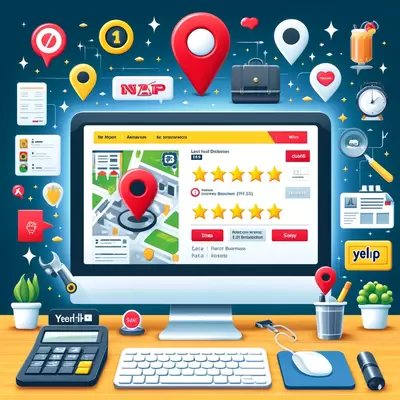Local directories are powerful tools for businesses seeking to enhance their online visibility and attract more customers from their local area. They not only help in establishing credibility but also play a significant role in local SEO, contributing to better search engine rankings. In this blog, we’ll dive into what local directories are, why they are important, and how to effectively utilize them for your business’s benefit.
What Are Local Directories?
Local directories are online platforms where businesses can create profiles to list important information, such as name, address, phone number (NAP), and more. Examples of popular local directories include Google My Business, Yelp, Bing Places, and Yellow Pages. These directories are often used by potential customers to find businesses in their area, read reviews, and get contact information.
Why Are Local Directories Important?
-
Enhanced Local Visibility: Listing your business on local directories makes it easier for customers in your area to find you. This is crucial for local businesses that rely on attracting nearby customers.
-
Improved SEO Rankings: Search engines like Google use information from local directories to determine the relevance and credibility of your business. Accurate and consistent listings can boost your local search rankings.
-
Increased Customer Trust: Being present on reputable local directories helps build trust with potential customers. They are more likely to engage with businesses that have a verified presence on trusted platforms.
-
Access to Customer Reviews: Many local directories allow customers to leave reviews. Positive reviews can enhance your reputation and attract more customers, while feedback can help you improve your services.
-
Cost-Effective Marketing: Most local directories offer free or low-cost listing options, making them a cost-effective way to market your business to a local audience.
How to Utilize Local Directories Effectively
-
Choose the Right Directories: Start by identifying which local directories are most relevant to your business. Major directories like Google My Business and Yelp are essential, but also consider niche directories that cater to your specific industry.
-
Create a Complete Profile: Ensure that your business profile is complete and accurate. Include all relevant details such as your business name, address, phone number, website, business hours, and a brief description of your services.
-
Ensure NAP Consistency: Consistency is key. Make sure your business’s name, address, and phone number (NAP) are identical across all directories. Inconsistent information can confuse customers and negatively impact your SEO rankings.
-
Optimize for Keywords: Use relevant keywords in your business description and services to improve your visibility in local searches. This helps search engines understand what your business offers and match you with the right customers.
-
Encourage Customer Reviews: Encourage satisfied customers to leave positive reviews on your directory listings. Respond to reviews, both positive and negative, to show that you value customer feedback and are committed to improving your services.
-
Update Your Listings Regularly: Keep your directory listings up-to-date with any changes to your business information. This ensures that potential customers always have accurate and current information about your business.
-
Monitor and Manage Your Listings: Use tools like Moz Local or BrightLocal to monitor your directory listings, track reviews, and manage any duplicate listings that may appear.
Common Mistakes to Avoid
-
Neglecting Directory Listings: Failing to list your business on relevant local directories can lead to missed opportunities for attracting new customers.
-
Inconsistent Information: Inconsistent NAP information across directories can harm your SEO efforts and confuse potential customers.
-
Ignoring Negative Reviews: Negative reviews can damage your online reputation. Always respond professionally and use the feedback to make improvements.
-
Not Leveraging Niche Directories: Don’t overlook smaller, niche directories that cater specifically to your industry. They can provide targeted exposure and drive more relevant traffic to your business.
-
Overlooking Mobile Optimization: Ensure that your directory listings are mobile-friendly, as many local searches are conducted on smartphones and tablets.
Conclusion
Local directories are an invaluable resource for businesses looking to increase their local visibility, improve SEO rankings, and build customer trust. By creating and maintaining accurate, optimized listings on relevant directories, you can attract more local customers and enhance your online presence. Start leveraging the power of local directories today to give your business a competitive edge in your community.



